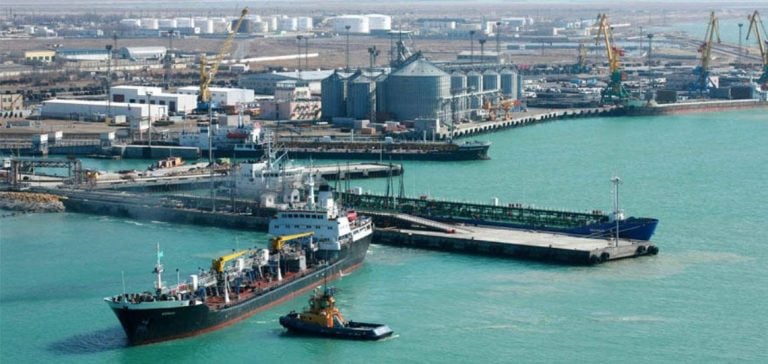Condor Energies Inc.
announces a significant step forward in its liquefied natural gas (LNG) production projects by receiving a second gas allocation from the Kazakh authorities.
This allocation of natural gas will serve as feedstock for the construction of a modular, low-carbon LNG production facility, located near the Caspian Sea port of Kuryk.
This development comes as Kazakhstan seeks to modernize its energy infrastructure and diversify its energy sources, while meeting the growing demand for sustainable fuels.
The new Kuryk facility is designed to produce the energy equivalent of 565,000 liters of diesel per day, enough to power 155 freight locomotives.
Combined with the first LNG plant in Alga, Condor expects to generate more than a million liters of diesel per day.
This initiative also contributes to reducing CO2 emissions, equivalent to taking more than 58,000 cars off the road every year.
Condor’s strategy aligns with Kazakhstan’s decarbonization objectives, while supporting its booming transport sector.
Strategic support for the transport sector
As a transportation and logistics hub in Central Asia, Kazakhstan benefits from a rapidly modernizing transport network.
The country is investing heavily in infrastructure improvements, including roads, railroads, ports and airports, to strengthen its strategic position between China and Europe.
Condor’s Kuryk LNG facility aims to provide low-carbon fuel for freight locomotives and transport trucks, facilitating trade between the two regions.
The second gas allocation will come from an existing pipeline near the port of Kuryk, where Condor has already acquired 16 hectares of industrial land for its LNG facility.
In addition, the company has secured a 5 MWh electricity allocation, guaranteeing a stable energy supply for its operations.
This integrated approach enables Condor to maximize the efficiency of its projects while minimizing its environmental footprint.
A long-term vision for Kazakhstan
Don Streu, President and CEO of Condor, underlines the importance of this second allocation, saying:
“We are very excited and grateful to receive our second gas allocation in Kazakhstan. This allocation reinforces our first-mover strategy in providing the country with a long-term, sustainable supply of LNG for its growing transportation sector.”
This statement highlights Condor’s commitment to sustainable development and reduced operating costs for its customers.
The impact of this initiative is not limited to LNG production.
It is also part of a broader framework of economic development for Kazakhstan, where demand for sustainable energy solutions is growing rapidly.
By supplying an alternative fuel, Condor is contributing to the country’s energy transition, while supporting infrastructure projects that promote economic growth.
Future prospects and challenges
As Condor continues to develop its LNG projects, several challenges remain.
Competition in the LNG market is increasing, with other players also looking to establish themselves in Central Asia.
In addition, the need for clear regulation and ongoing government support is crucial to the long-term success of these initiatives.
Condor’s ability to navigate this complex landscape will be crucial to its market position.
At the same time, the company is exploring other opportunities, notably in lithium production in Kazakhstan, which could further diversify its activities and strengthen its resilience to energy market fluctuations.
This proactive approach could enable Condor to position itself as a key player in the region’s energy transition, while meeting the growing need for sustainability and innovation.
Recent developments at Condor Energies Inc.
illustrate not only the evolution of the energy sector in Kazakhstan, but also the growing importance of low-carbon solutions as part of global decarbonization efforts.
By committing to providing sustainable fuels, Condor is helping to shape a more responsible and sustainable energy future for the region.






















